Research
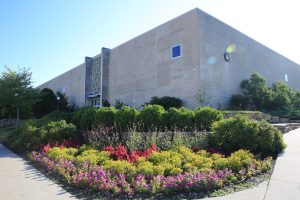
July 13, 2022
CAFNR Ag-celerator for Agricultural Technologies (CAAT) Winners Announced
Two CAFNR faculty and their teams were recently awarded inaugural CAAT grants.

July 7, 2022
Moving the MOAES Forward
Restructured experiment station centers focused on sharing agricultural advances with Missouri farmers and ranchers.
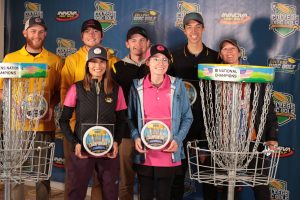
May 3, 2022
‘A Perfect Weekend’
Two CAFNR graduate students helped Mizzou capture men's and women's disc golf national championships.
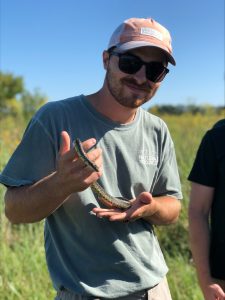
April 19, 2022
Pursuing His Passions for Research
Evan Aljundi's passion for white-tailed deer has led to graduate research focused on Chronic Wasting Disease.
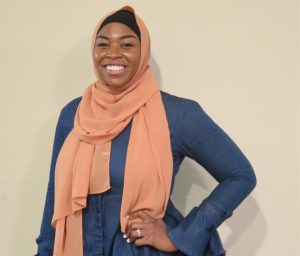
March 22, 2022
Building a career in medicine
Nutrition and exercise physiology degree incorporated all of Mubinah Khaleel's interest areas.
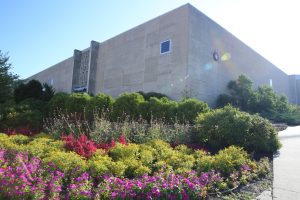
March 18, 2022
Cultivating Future Leaders
The National Institute of Food and Agriculture (NIFA) recently awarded 54 predoctoral fellowship grants to develop new scientists and professionals to enter research, education and/or Extension fields within the food and agricultural sciences. The aim of these fellowships is to cultivate future leaders who can solve emerging agricultural challenges of the 21st century. These grants are part of NIFA’s Agriculture and Food Research Initiative. Two University of Missouri (MU) College of Agriculture, Food and Natural Resources (CAFNR) students were recipients for 2022. Going back to his roots Kyle Paddock, originally from a small town in central Illinois, has been…
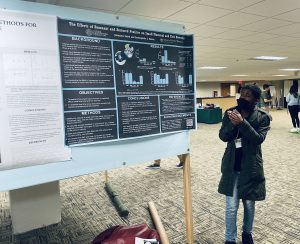
Feb. 21, 2022
A Rewarding Journey
When Jermayne Smith began the search for a graduate school experience he had one main goal in mind – find a project where he could work with small mammals. Samniqueka Halsey, an assistant professor in the School of Natural Resources within the University of Missouri College of Agriculture, Food and Natural Resources (CAFNR), had the perfect research idea in mind. For nearly two years, Smith has been researching the effects of remnant and restored prairies on small mammal and tick variety. Remnant prairies are true native prairies, with restored prairies being land that has been returned to a prairie state.
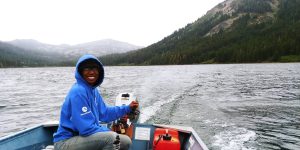
Feb. 14, 2022
A New World of Possibilities
From Chicago’s South Side, Brittney Cade went into college wanting to find a career related to her passion for animals. Cade said she thought there were only two viable careers in that field – veterinarian or zookeeper. Once she started at Iowa State University, she discovered a new world of possibilities related not only to animals, but to the environment and natural resources. Cade earned a bachelor’s degree in animal ecology from Iowa State and her master’s degree in biology (conservation emphasis) from Miami University, in Ohio. Cade is currently working on her PhD in Human Dimensions of Natural Resources…
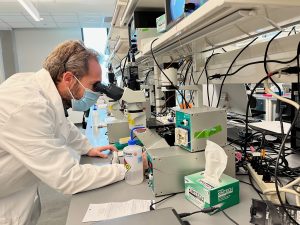
Feb. 3, 2022
The Bench-Bedside Interface
Over the past couple of decades, new diabetes cases have tripled in the U.S., and 80 percent of patients with type 2 diabetes eventually succumb to cardiovascular disease. Jaume Padilla, associate professor in the Department of Nutrition and Exercise Physiology (NEP), is working to solve this important problem. Padilla received his PhD in exercise physiology at Indiana University before he came to the University of Missouri (MU) Department of Biomedical Sciences in 2009 as a postdoctoral fellow. “I came to MU to work with Harold Laughlin, a world-renowned investigator in exercise vascular biology, and with the goal of expanding my…

Jan. 31, 2022
New Growth
David Braun, professor of plant science and technology at the University of Missouri College of Agriculture, Food and Natural Resources (CAFNR), has been named director of the Interdisciplinary Plant Group (IPG), effective Feb. 1, 2022. “I am humbled and excited to lead this incredibly talented group of creative and world-class plant biologists,” Braun said. “The IPG is part of my core identity at MU, and I am extremely grateful to it for all of the support it offers to faculty and staff members and the outstanding training environment it provides for our students and postdocs. I look forward to…